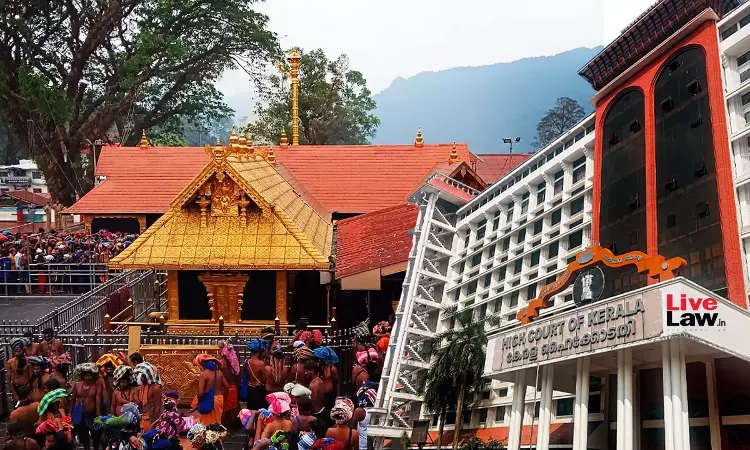The Kerala High Court dismissed a batch of petitions challenging the notification issued by the Devaswom Commissioner of the Travancore Devaswom Board for the years 2017-18, 2021-22 for appointment of Melsanthies of Sabarimala Devaswom and Malikappuram Devaswom. The challenge was against the eligibility criteria given in the notifications that the applicant shall only be a 'Malayala...

